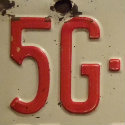Eurobites: Finland's Elisa Trials 'Human-Eye Quality' Virtual Reality Over 5G
Also in today's EMEA regional roundup: BT's Openreach to issue FTTH equipment tender; Virgin Media raises the broadband bar in Reading; CityFibre reportedly seeks to revamp its Vodafone deal; the continuing European adventures of Huawei.

Also in today's EMEA regional roundup: BT's Openreach to issue FTTH equipment tender; Virgin Media raises the broadband bar in Reading; CityFibre reportedly seeks to revamp its Vodafone deal; the continuing European adventures of Huawei.
Finland's Elisa has been taking part in what it claims is a world first, teaming up with virtual reality specialist Varjo to showcase a 5G-powered VR broadcast that, says Elisa, "matched the quality of a human eye resolution." In the trial, Elisa provided the 5G and Varjo provided the VR glasses, which are actually intended for industrial use. Elisa and Varjo will be repeating the demonstration at Mobile World Congress in February.
Openreach, the semi-autonomous fixed access infrastructure division of UK incumbent telco BT, is seeking a third FTTH infrastructure supplier. Its vendor roster already comprises Huawei and Nokia, but Openreach is seeking the additional security of a third supplier. To find out which vendors should be sharpening their RFP response pencils, check out this article on our sister site, Broadband World News.
Cable operator Virgin Media has switched on what it claims is the UK's fastest gigabit home broadband, in and around the town of Reading, about 40 miles west of London. Nearly a quarter of a million homes across Berkshire, Hampshire and Buckinghamshire will be able to access the "Gig1" service, which starts at £62 (US$80) a month for an 18-month contract and offers an average peak-time download speed of 1,104 Mbit/s, says the company. Virgin is aiming to bring gigabit connectivity to nearly 15 million UK homes by the end of 2021.
In related news… The first batch of UK Premier League soccer matches being screened live on Amazon Prime Video is fast approaching, and Virgin Media has (sort of) followed BT's lead by making it possible for those who signed up to Prime Video to watch the matches via the Virgin set-top without having to mess about with dongles, TV remotes and the like. Last week BT revealed that it had done a deal with Amazon that allows new and existing BT TV customers who recontract to watch Prime Video free of charge for six months, meaning that they can access the live soccer matches being screened by Amazon Prime in December and January.
UK altnet CityFibre is reportedly attempting to renegotiate its partnership with Vodafone, under the terms of which Vodafone holds some form of exclusive rights to sell broadband services on the first phase of CityFibre's network rollout. According to the Daily Telegraph (paywall applies), CityFibre is offering Vodafone better terms in return for allowing the altnet to sign up other retail broadband providers to its network. (See Vodafone Gets Set for Gigafast Assault on BT.)
It's been hard keeping track of which European countries plan to do what with regard to the use of Huawei equipment in future networks, so it's perhaps not surprising that German Chancellor Angela Merkel has called on her European neighbors to try to agree on a more common approach towards China. As Reuters reports, she told lawmakers: "One of the biggest dangers ... is that individual countries in Europe will have their own policies towards China and then mixed signals will be sent out." (See Eurobites: Germany Cools on Huawei's 5G Future, Eurobites: Our 5G Door Is Open, Germany Tells Huawei and Trump is losing the European war against Huawei.)
— Paul Rainford, Assistant Editor, Europe, Light Reading
Read more about:
EuropeAbout the Author(s)
You May Also Like












